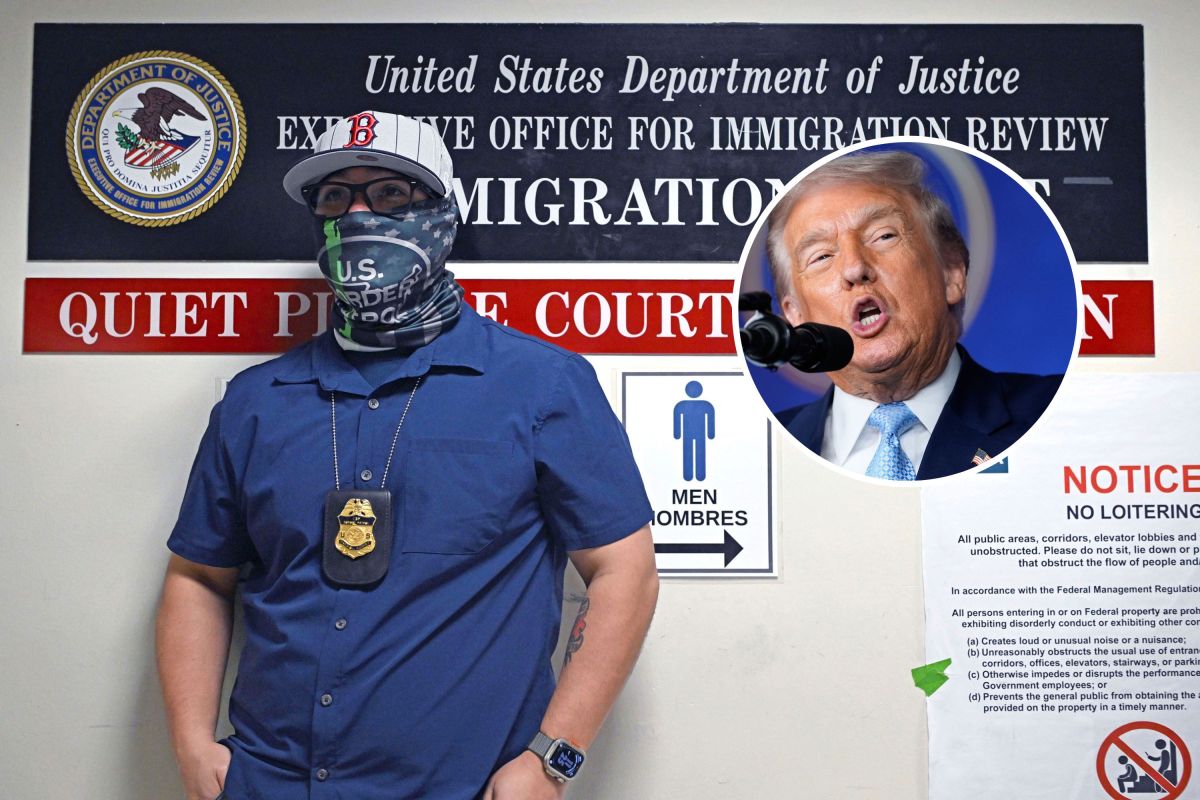President Donald Trump faced two major legal setbacks on Monday as courts in New York and Tennessee moved to constrain key parts of his domestic enforcement agenda. Within hours, a federal judge upheld New York’s limits on courthouse immigration arrests, while a state judge in Nashville blocked the deployment of Tennessee National Guard troops to Memphis. Why It Matters Within the span of a few hours on Monday, President Donald Trump’s domestic enforcement agenda was hit by two separate court rulings that underscored growing judicial resistance to the administration’s attempts to expand federal authority in states that push back. A federal judge in New York upheld a state law restricting civil immigration arrests at courthouses, while a Tennessee judge blocked the deployment of National Guard troops to Memphis, finding the move likely violated state constitutional limits. Together, the decisions highlight the legal constraints confronting Trump as he seeks to intensify immigration operations and broaden the use of military force in U. S. cities over state objections. What To Know I. Judge Upholds New York Law Barring Immigration Arrests at Courthouses President Donald Trump’s immigration agenda encountered a significant legal setback on Monday after a federal judge rejected the administration’s attempt to strike down a New York law restricting civil immigration arrests in and around state courthouses. U. S. District Judge Mae D’Agostino dismissed the Justice Department’s lawsuit challenging the 2020 Protect Our Courts Act (POCA) and related state executive orders. In a 41-page ruling, D’Agostino concluded that the federal government’s suit amounted to an improper effort “to commandeer New York’s resources to aid in federal immigration efforts” according to the decision. The court held that New York acted within its rights in limiting where federal agents may conduct civil immigration arrests. The Trump administration had argued that the state law violated the Constitution’s Supremacy Clause and unlawfully restricted federal enforcement authority. Federal lawyers also sought to compel state and local law enforcement agencies to share information with federal immigration officials. D’Agostino rejected those claims, writing that New York was exercising “its permissible choice not to participate in federal civil immigration enforcement.” POCA, enacted in 2020 in response to a sharp rise in courthouse arrests under Trump’s first term, prohibits civil immigration arrests of individuals traveling to, attending, or leaving state court proceedings unless agents hold a judicial warrant. The measure was intended to limit disruptions to court operations and ensure that parties and witnesses could appear in court without fear of apprehension. In recent months, federal immigration agents had intensified courthouse operations in New York and other cities as part of the administration’s broader strategy to increase removals of undocumented immigrants. That posture led to renewed friction with states that maintain restrictions on local cooperation with federal immigration authorities. Monday’s ruling marks a notable setback for the administration’s efforts to expand civil immigration arrests in sensitive locations. The case, United States v. New York, challenged both POCA and executive orders issued during former Governor Andrew Cuomo’s administration that limited state and local cooperation with federal immigration enforcement. D’Agostino dismissed the suit in its entirety. The ruling is likely to serve as a reference point for similar disputes arising in other states where federal immigration enforcement priorities clash with local laws or policies restricting cooperation with federal agencies. II. Nashville Judge Blocks Memphis National Guard Deployment Just hours after the New York ruling, the Trump administration suffered a second legal blow-this time in Tennessee, where a state court halted the deployment of National Guard troops to Memphis. Davidson County Chancellor Patricia Head Moskal issued a temporary injunction blocking Republican Governor Bill Lee from continuing the activation of Tennessee National Guard personnel for participation in President Trump’s Memphis Safe Task Force. The deployment, requested by the administration under Title 32 authority, was intended to supplement federal and local law enforcement operations in response to high violent-crime rates in the city. In her order, Moskal found that the plaintiffs-including Shelby County Mayor Lee Harris, local commissioners, and several state lawmakers-had demonstrated sufficient immediate harm to justify halting the deployment. The judge wrote that the state’s militia law requires the Tennessee General Assembly to authorize National Guard activation for public-safety purposes and that crime conditions in Memphis did not constitute a “grave emergency” or “disaster” that would permit unilateral deployment by the governor. The order temporarily restrains Governor Lee and Major General Warner Ross III “from implementing and continuing the activation and deployment of Tennessee National Guard personnel” under the presidential memorandum. The injunction does not affect the presence of federal law enforcement officers already operating in the city. In a public statement, Mayor Harris called the ruling “a positive step toward ensuring the rule of law applies to everyone, including everyday Tennesseans and even the governor.” The state has five days to appeal the ruling. The lawsuit argues that deploying National Guard troops for routine law-enforcement functions violates both the Tennessee Constitution and state statutes, which strictly limit the circumstances under which the militia may be mobilized. The Memphis Safe Task Force, created by a September presidential memorandum, aims to increase law-enforcement presence and coordinate multi-agency operations across Memphis. Plaintiffs contend that the National Guard deployment exceeded both federal and state legal authority. The Tennessee ruling adds to a series of mounting legal challenges to the Trump administration’s domestic troop deployments, several of which are already moving through federal courts. What People Are Saying Kathy Hochul (Governor of New York) said: “Masked ICE agents shoved and injured journalists today at Federal Plaza. One reporter left on a stretcher. This abuse of law-abiding immigrants and the reporters telling their stories must end. What the hell are we doing here?” Bill Lee (Governor of Tennessee) who had approved the deployment of an undetermined number of Tennessee National Guard troops to Memphis, said: “I think [AG] General Skrmetti’s a brilliant lawyer who understands constitutional law, and I suspect he’s got the right answer on it.” What Happens Next Both rulings are likely to move quickly into appeals, with the Trump administration expected to challenge the New York decision in the Second Circuit and Tennessee Governor Bill Lee poised to seek an emergency stay and appellate review of the injunction blocking his National Guard deployment. New York’s courthouse-arrest restrictions will remain in effect during the federal appeal, while the Memphis deployment is paused unless a higher state court reverses the ruling. Together, the cases set up parallel legal battles over the limits of federal immigration enforcement and the circumstances under which state-controlled military forces can be used for domestic policing-disputes that could ultimately reach the Supreme Court.
https://www.newsweek.com/donald-trump-suffers-two-major-legal-setbacks-within-hours-11064188
Donald Trump Suffers Two Major Legal Setbacks Within Hours



